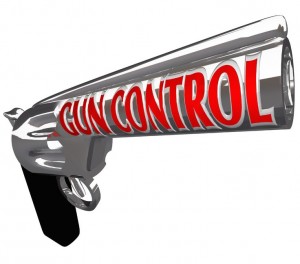 I didn’t play sports in high school or college, and aside from catching an occasional Oakland Raiders football game with my father, I didn’t watch them either. But people who I know and respect who have played sports, particularly intercollegiate sports, say that they learned invaluable lessons about fair play, leadership, about healthy competition and teamwork.
I didn’t play sports in high school or college, and aside from catching an occasional Oakland Raiders football game with my father, I didn’t watch them either. But people who I know and respect who have played sports, particularly intercollegiate sports, say that they learned invaluable lessons about fair play, leadership, about healthy competition and teamwork.
Some of them have also talked about the darker side of sports, of hazing and bullying and breathtaking brutality. This kind of abuse happens all across the country (see the list compiled by ESPN). Recently a version of such bullying has made its way into the papers in Alaska.
Some of the incidents across the country seem harmless. But some of it is repulsive and has resulted in death or permanent mental and physical scarring.
Schools and other institutions are now taking the lead on the discussion. And as that discussion continues, the light, is increasingly shinning on the culture that in some cases ignores, and other cases encourages, such behavior. The spotlight is headed for the top, from whence that culture springs.
The recent firing of the Rutgers basketball coach Tim Rice and the school’s athletic director Tim Pernetti have opened up the discussion beyond athlete on athlete bullying. Now, questions are being asked about bullying and abusive coaches, insensitive athletic directors and about the greater institutions that sometimes foster, and sometimes ignore such behavior. Why, people are wondering, if we aren’t putting up with kids bullying kids, are we putting up with abusive coaches and the leadership that tolerates such deplorable behavior? Why, in the age when there’s a veritable cottage industry of anti-bullying programs across the country, have we tolerated such abuse? Would we tolerate such behavior in the classroom?
Institutions across the country are now beginning to say no.
Following the firing of Rutgers’ Rice, the men’s lacrosse coach Brian Brecht was fired for verbal abuse. Wisconsin-Green Bay opened an investigation of basketball coach Brian Wardle for verbally and emotionally abusing players. A high school basketball coach in Saratoga Springs, N.Y. was suspended last week verbally abusing players. Another high school coach was fired in Michigan for the same behavior. Longtime Eastern Connecticut State University baseball coach Bill Holowaty was suspended for throwing of a helmet in the bleachers during a game and for verbal abusive. He then retired.
In Alaska however, a hockey coach is allowed to slash a player with a stick, allegedly cover the incident up, and the university’s leadership only takes action, and tepid at that, after the community began to make noise.
Here’s what we know so far: On May 13, Anchorage Daily News sports reporter Doyle Woody broke the story that in 2011 then UAA hockey coach Dave Shyiak struck player Nick Haddad with a hockey stick during a drill.
That’s not disputed, and in fact was one of the most well known secrets in the hockey community and among some university officials, including UAA’s athletic director Steve Cobb.
What is in dispute, as if it even matters, is how hard the strike was. Shyiak has said that he only hit Haddad’s knee pads. Others present, including former UAA hockey player Mickey Spencer who has gone public, say that the hit was more like a “baseball-style” swing at Haddad’s thighs.
“He tomahawked, lumber-jacked-whatever you want to call it-him across the thigh on his (hockey) pants,” Spencer said. Shyiak then told the players to keep it between them, Spencer said.
Haddad confirmed the hit, but said that it has been overplayed. “There was an incident with Coach Shyiak and myself where he slashed me across the pants during practice,” Haddad wrote in a statement. “Obviously it is not acceptable for a coach to do this to one of his players, and there is no excuse for it to have happened. That being said, I don’t believe his intent was to injure me and I think he regretted his actions immediately.”
(It should be noted that some players hazed by the Rutgers coach also made excuses about their coach, excuses sound eerily similar to those you might hear at any given night at a women’s shelter.)
Shortly after the incident, Cobb ordered a half-hearted investigation into the matter, where nobody, including Shyiak, was interviewed, even though nearly the whole hockey team witnessed it.
Shyiak was fired two years later not because he hit a kid with a stick, but because he was a losing hockey coach.
And it all might have been ignored forever if it weren’t for a group of dedicated hockey fans who never liked Cobb and took umbrage with him over his search for a new hockey coach. They, including someone with whom I’m in a relationship, began writing letters to university officials questioning athletic director Cobb’s overall performance. Some of those letters alluded to the assault.
But the university only began paying attention after the assault made its way into the newspaper.
Let’s be clear here: A hockey player was physically assaulted. University of Alaska President Pat Gamble and UAA Chancellor Tom Case knew about the allegations. But it took a newspaper article to spurn them into action.
UAF police are now investigating. Gamble and Case have clammed up presumably pending results of that investigation.
Unlike other school officials across the country, they haven’t made statements about not tolerating such behavior. They haven’t talked about how such repulsive behavior undermines the very values that forms their institutions. They are willing to sit silent until the investigation runs its course, which could take months. And they are willing to allow the athletic director, who was Shyiak’s boss and who is therefore ultimately responsible, continue to collect his hefty state salary.
When Gov. Chris Christie heard of the situation at Rutgers, he called the coach an “animal” and said that had he known about Rice’s behavior earlier, he would have used his power of persuasion to ensure that the coach and the athletic director were fired. There’s a reason why nobody in the country would ever call Christie “Captain Zero.”
Gov. Sean Parnell, the state’s moral arbiter, has spent a lot of time and public dollars urging Alaskans to choose respect. “We can stop the epidemic of domestic violence and sexual assault by shedding silence and passivity,” Parnell once said in a speech. “We can speak up and proclaim these acts to be unacceptable. Together, we can begin the change towards greater respect for one another.”
Parnell knows about the assault. So far he has chosen to choose silence.
Contact Amanda Coyne at amandamcoyne@yahoo.com


 Republican wonderkid Chris Turner, a Texas based political consultant, was spotted in Anchorage earlier this week. Although you wouldn’t know it from his firm’s lousy website, he is one of the industry’s rising stars supposedly having won 92 of the 100 races that his firm was involved in during the 2012 campaign cycle.
Republican wonderkid Chris Turner, a Texas based political consultant, was spotted in Anchorage earlier this week. Although you wouldn’t know it from his firm’s lousy website, he is one of the industry’s rising stars supposedly having won 92 of the 100 races that his firm was involved in during the 2012 campaign cycle.


















